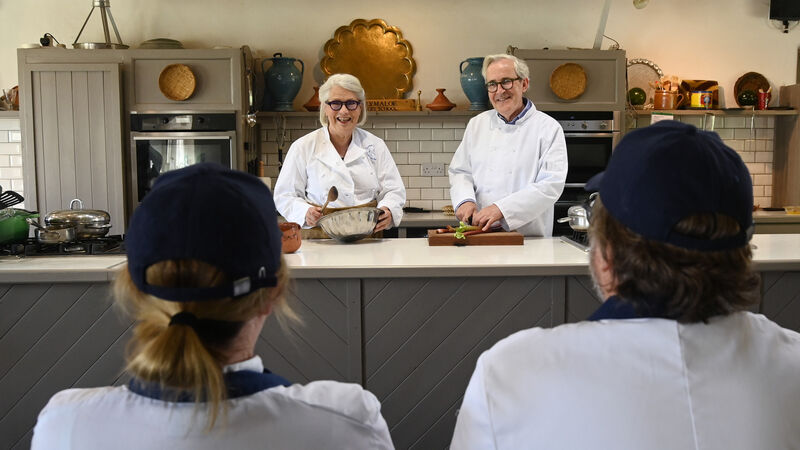Ballymaloe Cookery School wins WRC case as discrimination claim ruled unsupported

Darina Allen and Rory O'Connell, co-founders, Ballymaloe Cookery School, in a cookery demonstration for students taking part in the 12 weeks certificate course. Picture: Denis Minihane.
A workplace watchdog has dismissed a discrimination claim by a market cook and teacher against Darina Allen’s Ballymaloe Cookery School in Cork.
Julija Makejeva claimed she was discriminated against by her employer on the basis of family status, and Ballymaloe Cookery School contested her claim at a Workplace Relations Commission (WRC) hearing.
















